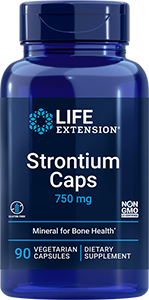PQQ reduces inflammation, improves mitochondrial-related metabolism in humans
Friday, January 24, 2014. Studies described in the December 2013 issue of The Journal of Nutritional Biochemistry add evidence to a benefit for pyrroloquinoline quinone (PQQ), a compound that activates factors involved in the regulation of cellular energy metabolism and mitochondria formation, in reducing inflammation and enhancing mitochondrial function. (Mitochondria are the cells' energy-producing organelles.)
In their introduction to the article, Calliandra B. Harris and colleagues from the University of California, Davis observe that the reduced form of PQQ is a potent antioxidant. "It is also noteworthy that there may have been a constant exposure to PQQ-like compounds throughout biological evolution based on the observations that stellar dust contains PQQ-like compounds," they remark.
Dr Harris and associates note that while the mechanisms of PQQ in energy-related metabolism and neurologic functions in animals have been explored, its mechanisms of action in humans had not been confirmed.
In one study, five men and five women ingested a single dose of PQQ and changes in antioxidant potential were measured in plasma samples collected over the following 48 hours. A decrease in plasma thiobarbituric acid reactive products (TBARS) was observed over time, indicating a reduction in oxidative stress in comparison with presupplementation levels.
In a second study, PQQ was administered daily for three days. Blood samples obtained before and after treatment were analyzed for markers of inflammation and a number of metabolites were measured in urinary samples obtained during the same time points. A significant decline in post-treatment C-reactive protein and interleukin-6 levels occurred indicating a decrease in the inflammatory response. The researchers also documented alterations in urinary metabolites that indicated improvements in mitochondrial efficiency.
"The data reported are among the first to link systemic effects of PQQ in animals to related or corresponding effects in humans," the authors announce. "The data herein support the hypothesis that human subjects respond rapidly to PQQ supplementation with changes in urinary metabolites consistent with enhanced mitochondria related functions."
|
What's Hot
In the Canadian Medical Association Journal, European researchers reveal a finding that will come as no surprise to Life Extension members. Tasnime N. Akbaraly, PhD, of France's Institut National de la Santé et de la Recherche Médicale and colleagues report online on September 16 that high levels of interleukin-6, which are elevated during chronic inflammation, are associated with a reduction in successful aging, which they define as the absence of chronic diseases and disability coupled with optimal physical, cognitive, cardiovascular and respiratory functioning.
"Chronically high levels of interleukin-6 halved the odds of successful aging 10 years later and was associated with increased odds of future cardiovascular disease and death from noncardiovascular causes in a dose–response fashion," Dr Akbaraly and coauthors write. "These associations were independent of socioeconomic factors, health behaviours (smoking, physical activity), conditions such as obesity, acute inflammation and use of anti-inflammatory drugs."
The study analyzed data from 3,044 middle-aged participants in the Whitehall II study, which examined 10,308 British civil servants every five years beginning in 1985. Blood samples collected during two examinations were analyzed for interleukin-6, and questionnaire responses provided health behavior information. Subjects were categorized as having undergone successful aging, cardiovascular disease, noncardiovascular death, or normal aging over a ten year follow up beginning in 1997-1999.
High levels of interleukin-6, defined as more than 2.0 nanograms per liter at the two points at which it was measured, reduced the odds of experiencing successful aging by 47%, elevated the risk of undergoing cardiovascular events by 64%, and more than doubled the risk of noncardiovascular death in comparison with subjects whose levels were lower. "If confirmed, these results shed new light on the importance of assessing long-term chronic inflammation in geriatric clinical practice, not only to target individuals at risk of unhealthy aging but also to promote ideal health by managing long-term chronic inflammation," the authors conclude.
|
 |
Latest Products |
 |
|
Strontium has been prescribed in Europe for years to promote healthy bone aging. Strontium is a trace mineral whose metabolism is closely linked to that of calcium. (It resembles calcium at the molecular level.) Strontium concentrates in the skeletal system, where it plays a key role in supporting bone tissue density.
The suggested daily serving of 3 vegetarian Strontium Caps supplies 750 mg of this vital trace mineral. Strontium Caps are part of a daily nutrient regimen for individuals in need of especially comprehensive bone health support.
|
| |
 |
|
For many years, women had limited options for relieving menopausal symptoms. Fortunately, natural plant-based extracts have been discovered that reduce menopausal discomforts and support healthy estrogen metabolism during menopause and beyond. These findings have resulted in a proprietary formulation combining a patented hops extract with a super-standardized lignan (HMRlignan™).
This patented hops extract contains a phytoestrogen (8-prenylnaringenin) that offers natural female support during menopause. In two human clinical trials with this special hops extract, menopausal women experienced significantly fewer hot flashes along with improvement in a variety of other menopausal discomforts. This hops extract (called Lifenol™) has been combined with HMRlignan™ (containing 7-hydroxymatairesinol) to make it even more useful. A study indicated that postmenopausal women using 50 mg HMRlignan™ daily over eight weeks experienced a 53.5% reduction in hot flashes as well as a reduction in other common menopausal complaints.
Lifenol™ is a trademark of Naturex Inc.
HMRlignan™ is a trademark used under sublicense from Linnea S.A.
|
|











